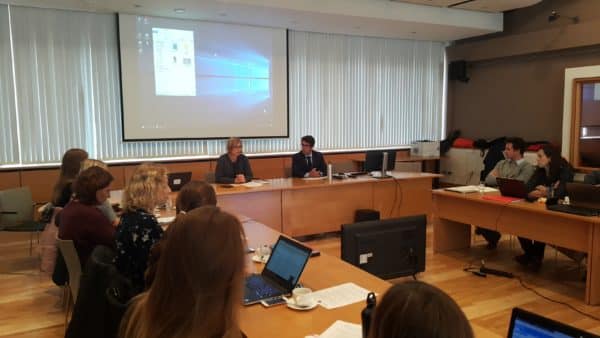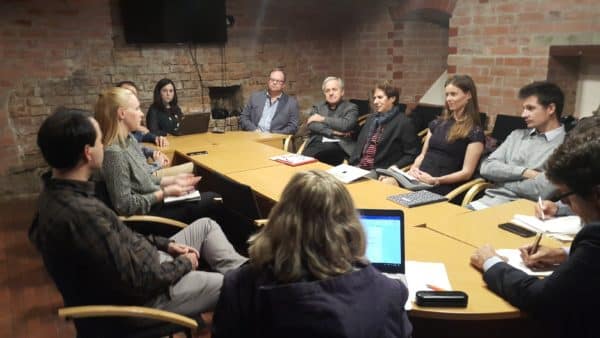Konferenz
HELCOM - 13. Treffen der Gruppe für nachhaltige landwirtschaftliche Praktiken
October 8, 2018
Beschreibung
[embed]https://youtu.be/YZb1YER1_sk[/embed]
IUCN and CCB, with the support of the Swedish Postcode Foundation, started a project in the Baltic region. The project that started in February 2017, with a planned duration of two years, is being carried out by IUCN in partnership with leading regional experts, members of academia, research institutes and grassroots organizations. Through desk and field research and laboratory experiments, IUCN and partners are engaged to demonstrate the impacts of plastic pollution in the Baltic region on ecosystems, biodiversity, food safety and climate change and to address three driving questions:

To continue shaping our project, both organizations hosted on 8 October, 2018 a workshop in Riga, Latvia. Please find here a general invitation, agenda and the list of participants of the workshop.
Presentations of the workshop are available here (to be updated):

IUCN and CCB, with the support of the Swedish Postcode Foundation, started a project in the Baltic region. The project that started in February 2017, with a planned duration of two years, is being carried out by IUCN in partnership with leading regional experts, members of academia, research institutes and grassroots organizations. Through desk and field research and laboratory experiments, IUCN and partners are engaged to demonstrate the impacts of plastic pollution in the Baltic region on ecosystems, biodiversity, food safety and climate change and to address three driving questions:
- How much and what type of plastics do Baltic countries load in the Baltic Sea annually?
- Does plastic pollution enhance climate change by impacting sea ice formation and melting?
- Does plastic negatively impact food sources and endangers species in the Baltic Sea?

To continue shaping our project, both organizations hosted on 8 October, 2018 a workshop in Riga, Latvia. Please find here a general invitation, agenda and the list of participants of the workshop.
Presentations of the workshop are available here (to be updated):
- Marine Plastic Footprint, Julien Boucher, EA Shaping Environmental Action, including basic data for modelling national footprints (to be updated, based on further inputs)
- Closing the plastic tap with Baltic companies, Willemijn Peeters, Searious Business (NB: nothing from this publication may be used or duplicated without explicit prior consent from Searious Business)
- Interactions and effects of microplastic particles on sea ice formation, melting, etc., Nicolas-Xavier Geilfus, University of Manitoba, Canada
- HELCOM Regional Action Plan on Marine Litter: drawbacks and prospects, Mikhail Durkin, CCB
- From coastal beach clean ups to source reduction – how to reach different target groups, Sandra Toivio, Keep Sweden Tidy
- Plastic Free Baltic: from political commitments to practical work, Eugeniy Lobanov, Center for Environmental Solutions / Maria Weber, Polish Ecological Club


